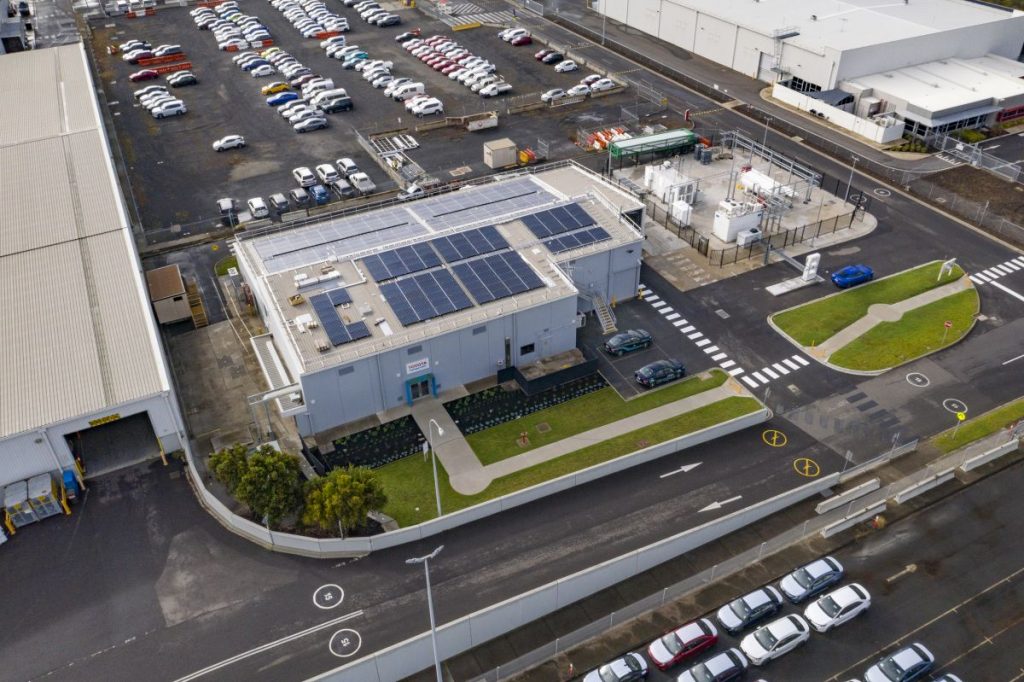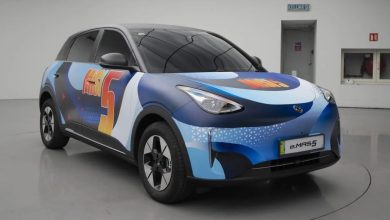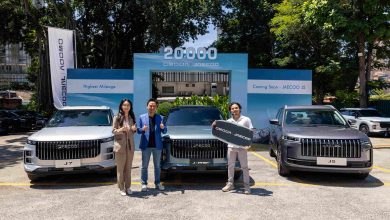Toyota Opens Australia’s First Commercial Hydrogen Plant
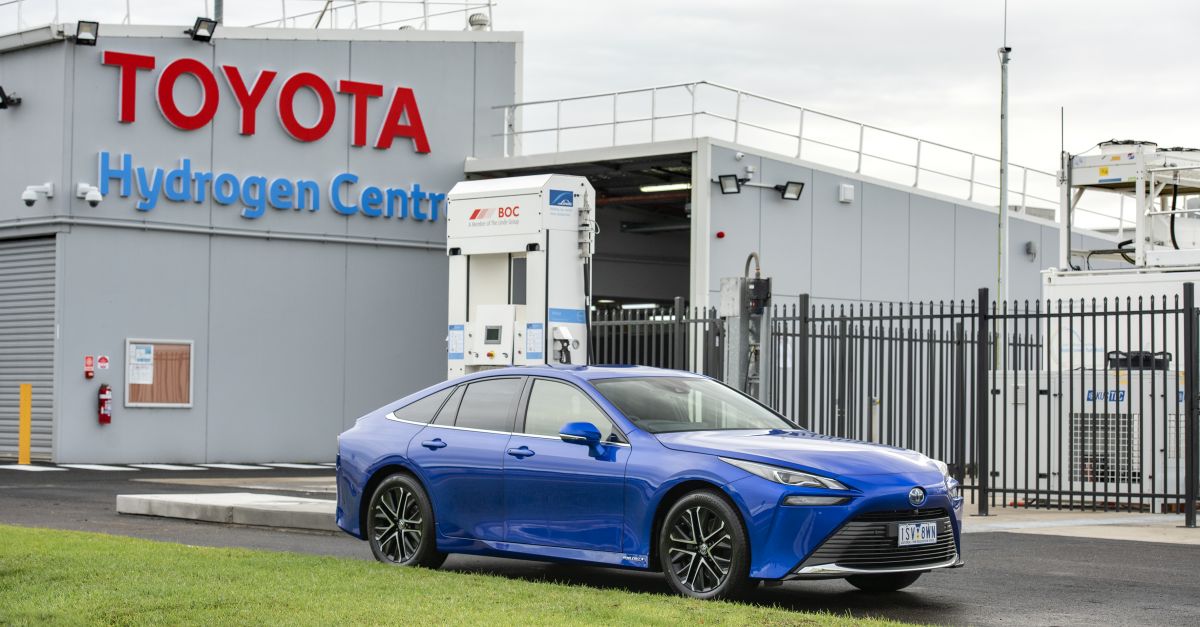
Toyota continues to expand its hydrogen ambitions down under with this ambitious new project.
While many automakers have resigned to the fact that battery electric vehicles (BEVs) are most likely the future mode of propulsion for cars of the future, there are actually a growing number of car companies however who are still pushing for hydrogen to eventually win out.
One such automaker that is a still big player on the hydrogen front is Toyota, who have recently opened Australia’s first commercial-grade permanent hydrogen production, storage and refuelling facility at its former manufacturing site in Altona. Coming after news of the first hydrogen filling station down under that just opened a week prior in Victoria, this new ambitious new project is part of Japanese auto giant’s plan to introduce its Mirai FCEV over in Oz sometime later this month.
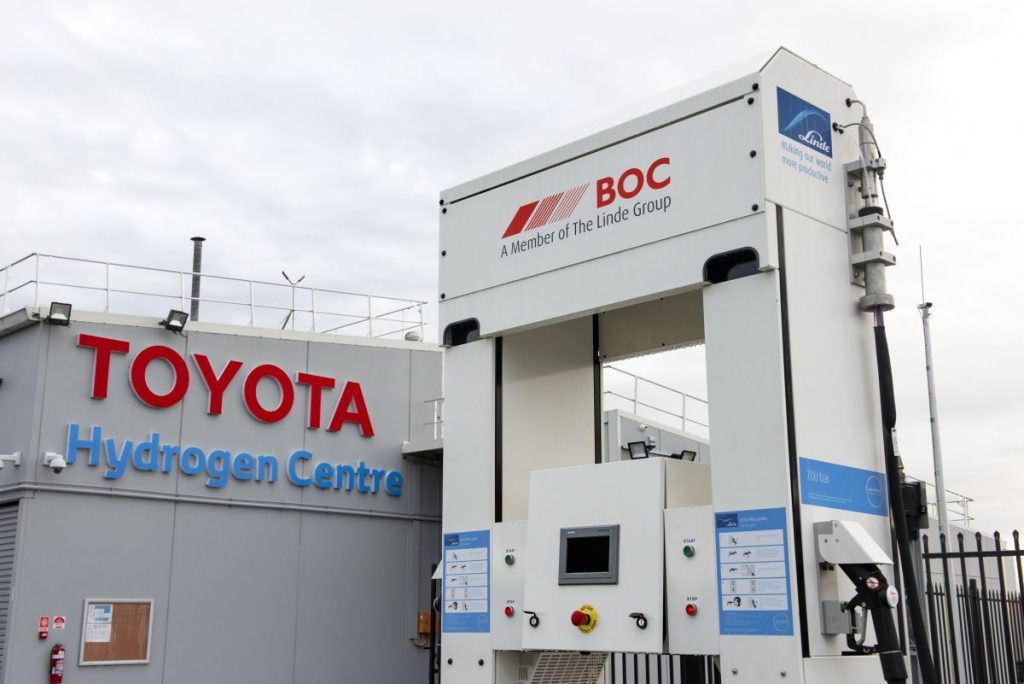
Speaking more about this site located in the west of Melbourne, this first Toyota hydrogen production plant down under is also in fact its biggest in the world in terms of producing, storing and dispensing hydrogen. Touted to be able to produce total of 80 kg of hydrogen each day from a solar-powered 200 kW electrolyser, these gases will be stored in a bank of storage tubes at medium and high pressure before being used to refuel both the fuel-cell forklifts as well as the upcoming Mirai FCEVs.
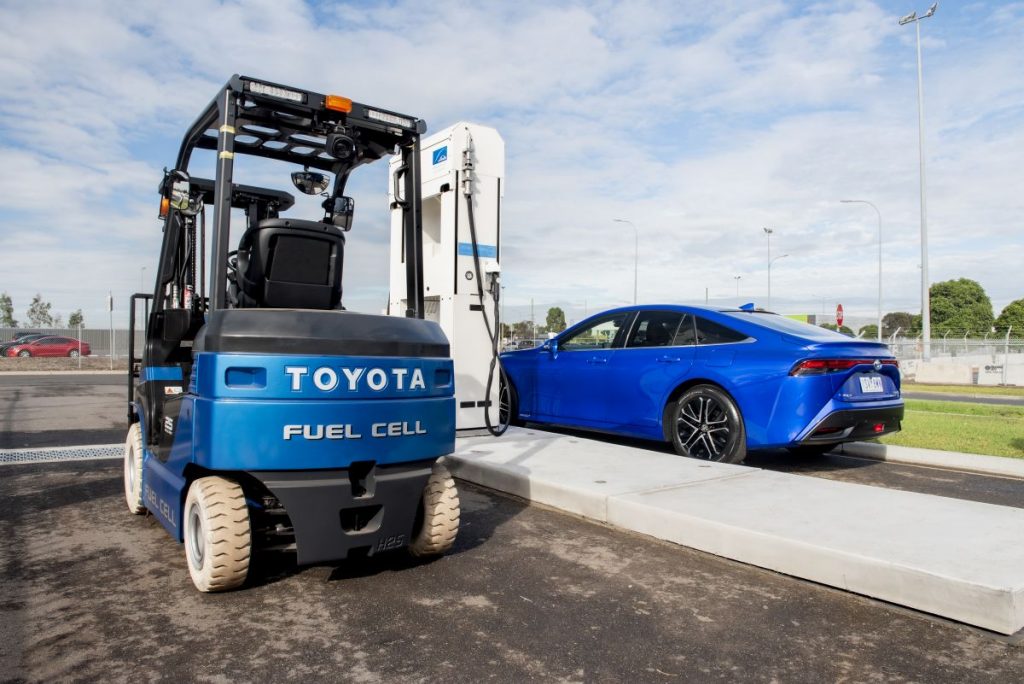
Aside from its primary function of producing hydrogen, the Toyota Hydrogen Centre, that incidentally makes up part of the larger Toyota Centre of Excellence) will also serve a secondary function as an education centre ‘to provide information on how hydrogen fuel cells work and the benefits to society’. This is in addition to ‘helping dispel any myths around the safety and use of hydrogen as a fuel’ too.
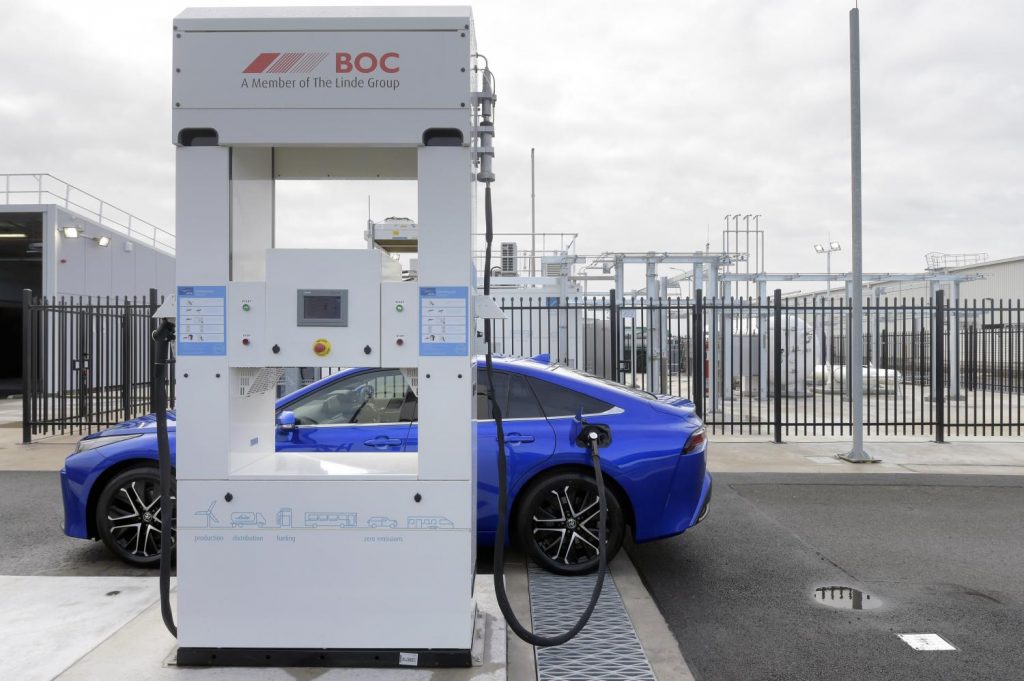
As for Toyota’s plans with the Mirai down under meanwhile, a total of 20 of these FCEV sedans will set to be leased out on a trial basis in order to gain feedback regarding the feasibility of these vehicles down under. These second-generation hydrogen-powered large sedans that were launched recently are capable of 650 km of zero-emissions motoring on a single tank, with each refuel taking up to 3 minutes only.
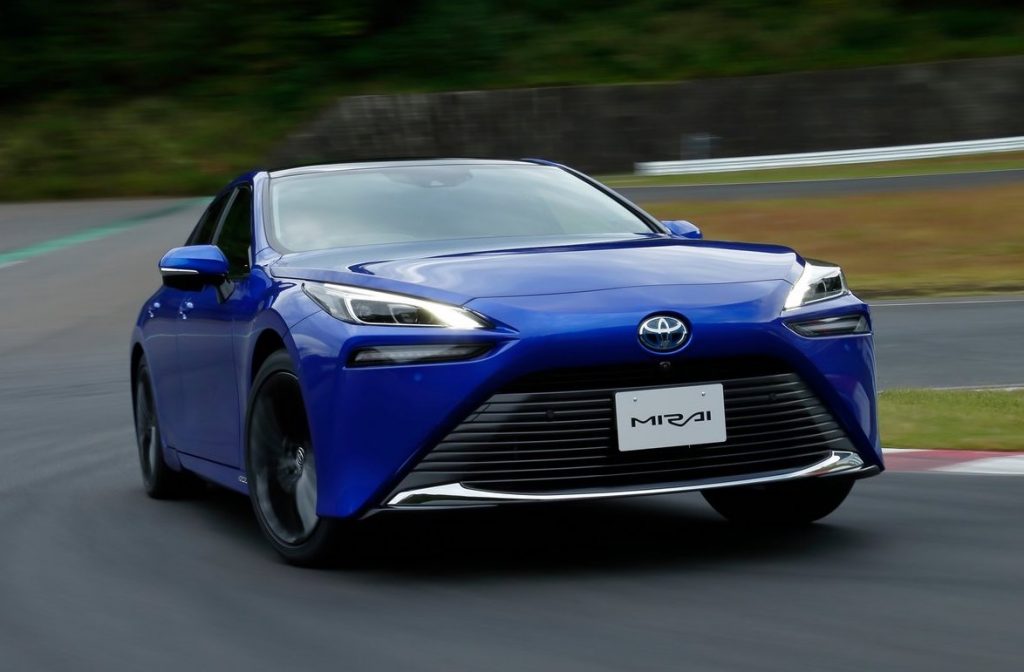
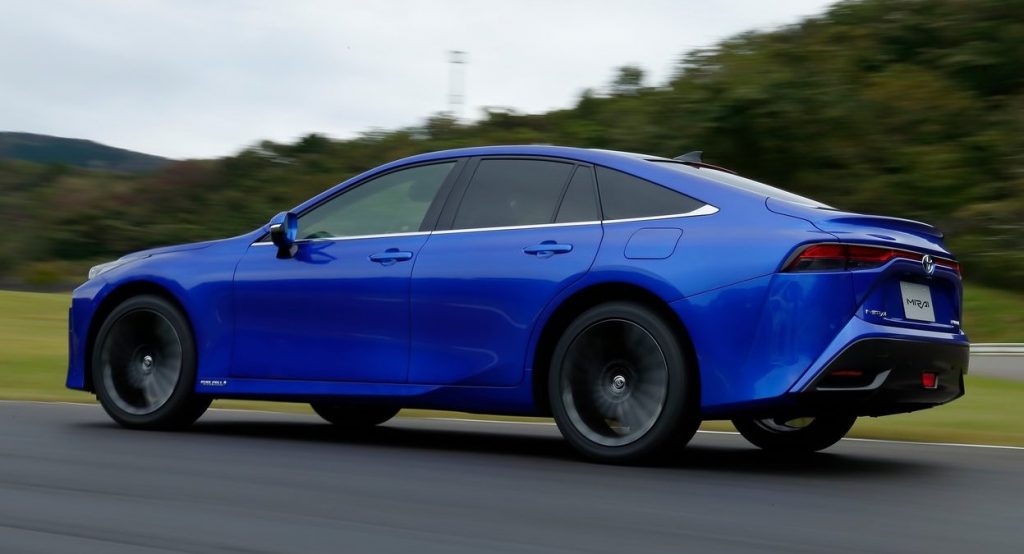
A total of 10,000 Mirais have since been sold over the past 7 years, though mainly in North America and Japan where hydrogen infrastructure is comparatively developed. Toyota therefore is targeting that with this most recent hydrogen-related investment made in Australia, it is able to better implement a ‘broad-scale introduction’ of its upcoming FCEV models over there too.
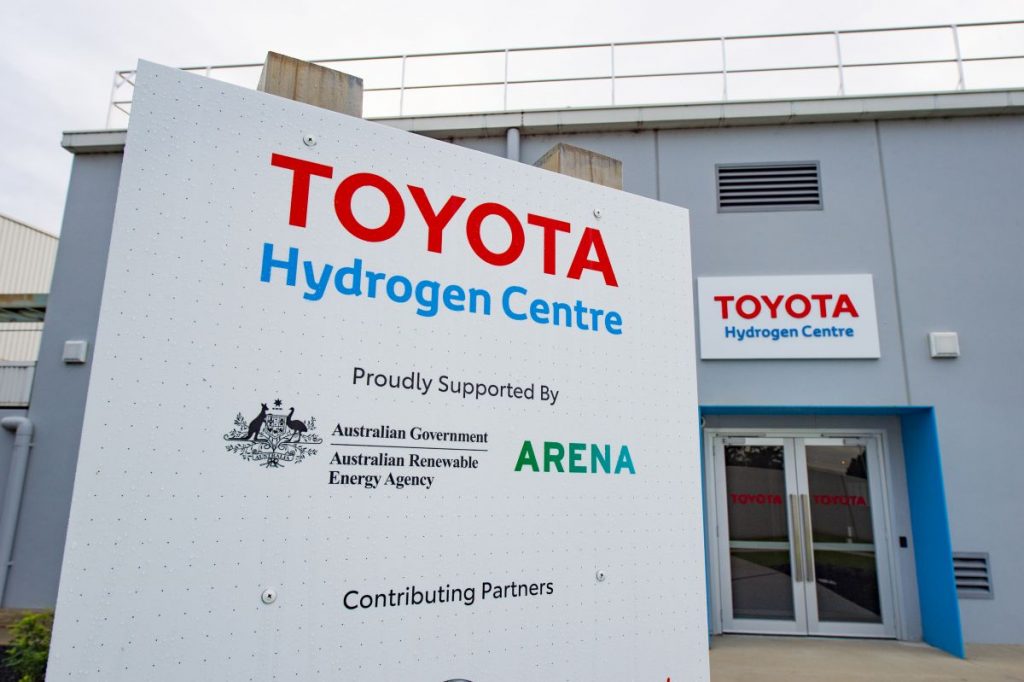
PRESS RELEASE: Toyota has commissioned Victoria’s first commercial-grade permanent hydrogen production, storage and refuelling facility at its former manufacturing site at Altona in Melbourne’s west.
Toyota Australia President and CEO Matthew Callachor said the Toyota Hydrogen Centre was built to showcase the benefits of hydrogen fuel cell technology as part of its commitment to developing sustainable technologies for future mobility and energy needs.
“Globally, Toyota is committed to achieving zero CO2 emissions from its vehicles and plants under the Toyota Environmental Challenge 2050 and the commissioning of our hydrogen refuelling facility here today is an important step towards achieving that goal,” Mr Callachor said.
“By demonstrating the viability of renewably-produced hydrogen as an automotive and energy fuel through this project, Toyota and its partners in government and business are pioneering a cleaner, more sustainable future that will encourage the further acceptance of this technology.
“We would like to thank our government partners for their assistance in bringing this project to fruition and those progressive forward-thinking business partners who will lease the 20 Mirai sedans we have brought into Australia to prove that hydrogen and fuel cell vehicles can, and will, play an important role in helping to move us towards a more sustainable and greener future,” Mr Callachor said.
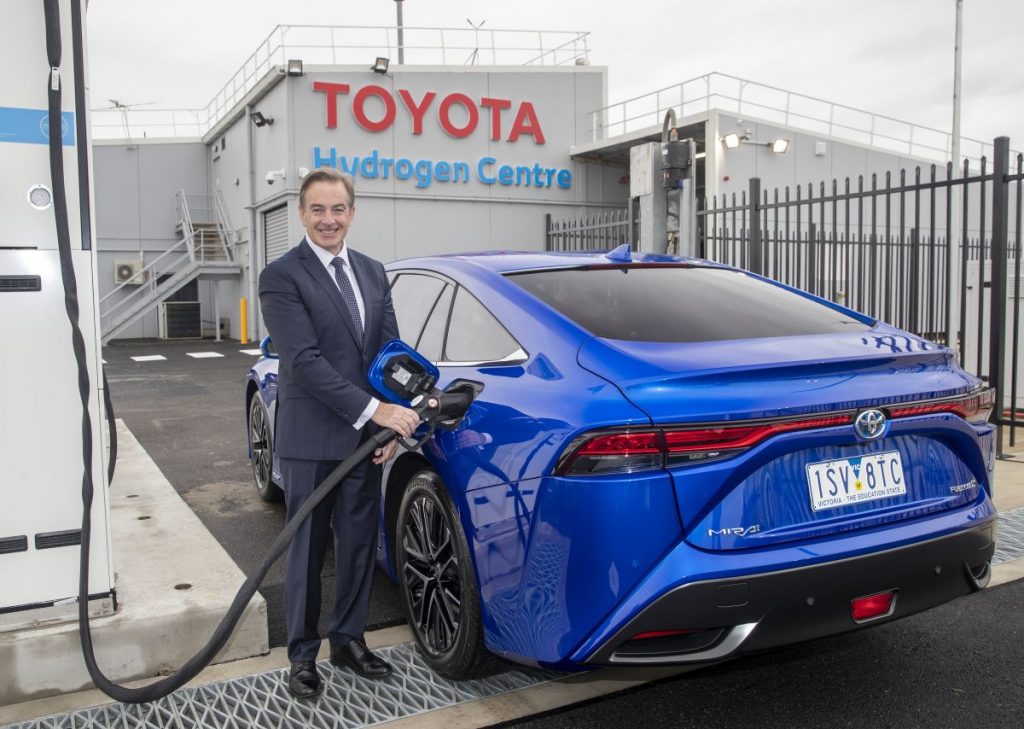
Dr Patrick Hartley, CSIRO Hydrogen Industry Mission attended the opening and said: “The infrastructure which is being commissioned at this new Toyota facility will not only progress the deployment of hydrogen vehicles, which can make a major contribution to helping our transport sector navigate Australia’s energy transition, but it will also serve as a beacon to other companies looking to invest in hydrogen transport technology.”
Sustainably produced hydrogen is the core element to fuel vehicles like the Toyota Mirai FCEV, an advanced fuel cell electric vehicle that produces no CO2 emissions, requires no battery recharging and has a range of 650km.
The Toyota Mirai has been sold in markets in Japan and US for the past seven years but the greatest challenge to the broad-scale introduction of fuel cell electric vehicles in Australia has been a lack of refuelling infrastructure and the Toyota Hydrogen Centre is an important step in addressing this challenge.
Together with the hydrogen production, storage and refuelling facility, the Toyota Hydrogen Centre also incorporates an Education Centre to provide information on how hydrogen fuel cells work and the benefits to society, helping to dispel any myths around the safety and use of hydrogen as a fuel.
Hydrogen is produced on site by a 200kW electrolyser that uses electricity to split water into hydrogen and oxygen components and has the capacity to produce up to 80kg of hydrogen per day.
Power for the electrolyser is drawn from a combination of an 87kW solar array, a 100kW battery storage and mains grid depending on what’s available at the time.
The hydrogen is then stored in a bank of storage tubes at medium and high pressure to be able to refuel both the fuel-cell forklifts that Toyota uses in other parts of the Altona complex and hydrogen FCEVs, like the new Mirai FCEV.
